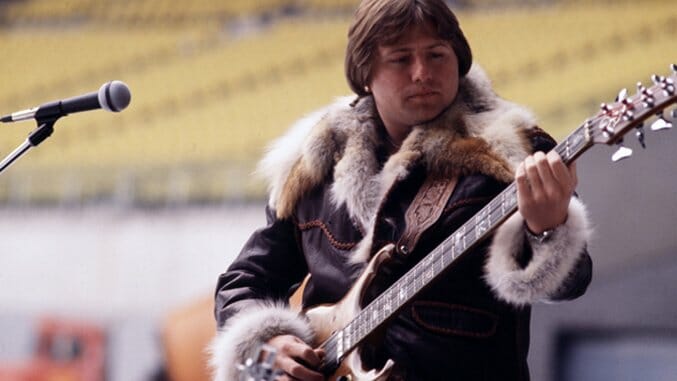The 10 Best Songs by Greg Lake

It wasn’t simply Greg Lake’s booming voice that enshrined him among the greatest rock singers of all time. It was his authority, his ability to play a supporting role in the bands he was a part of, while still maintaining an undeniable presence that placed him front and center no matter what. Although he first came to prominence on that first groundbreaking album by prog rock pioneers King Crimson, his name became forever entwined with those of the supergroup he shared with Keith Emerson and Carl Palmer—Emerson, Lake & Palmer. Lake passed away at the beginning of this month, but his a formidable presence remains in his music. That powerful voice will certainly be missed and we’ve compiled 10 of his best songs to honor that spirit.
10. Greg Lake, “Someone”
While Manoeuvres marked another significant step forward in his solo career (and away from simply being known as the “L” in ELP), Lake wisely chose to stick to the same musical template as far as some of its songs were concerned. Consequently “Someone” became an effective touchstone in an album that spotlighted his creative diversity. It didn’t boost sales, but it did show a consistency that went over favorably with his fans.
9. Greg Lake, “You Really Got a Hold On Me”
An unreleased bonus track tacked on to the re-release of his eponymous solo debut, this reboot of a Smokey Robinson classic finds Lake in unfamiliar terrain and well away from the stylish approach taken with every other song in the set. It may have been too out of character to consider it for release the first time around, but in retrospect, it further affirms Lake’s desire for diversity and need to establish himself as an artist capable of altering his personal palette.
-

-

-

-

-

-

-

-

-

-

-

-

-

-

-

-

-

-

-

-

-

-

-

-

-

-

-

-

-

-

-

-

-

-

-

-

-

-

-

-








































